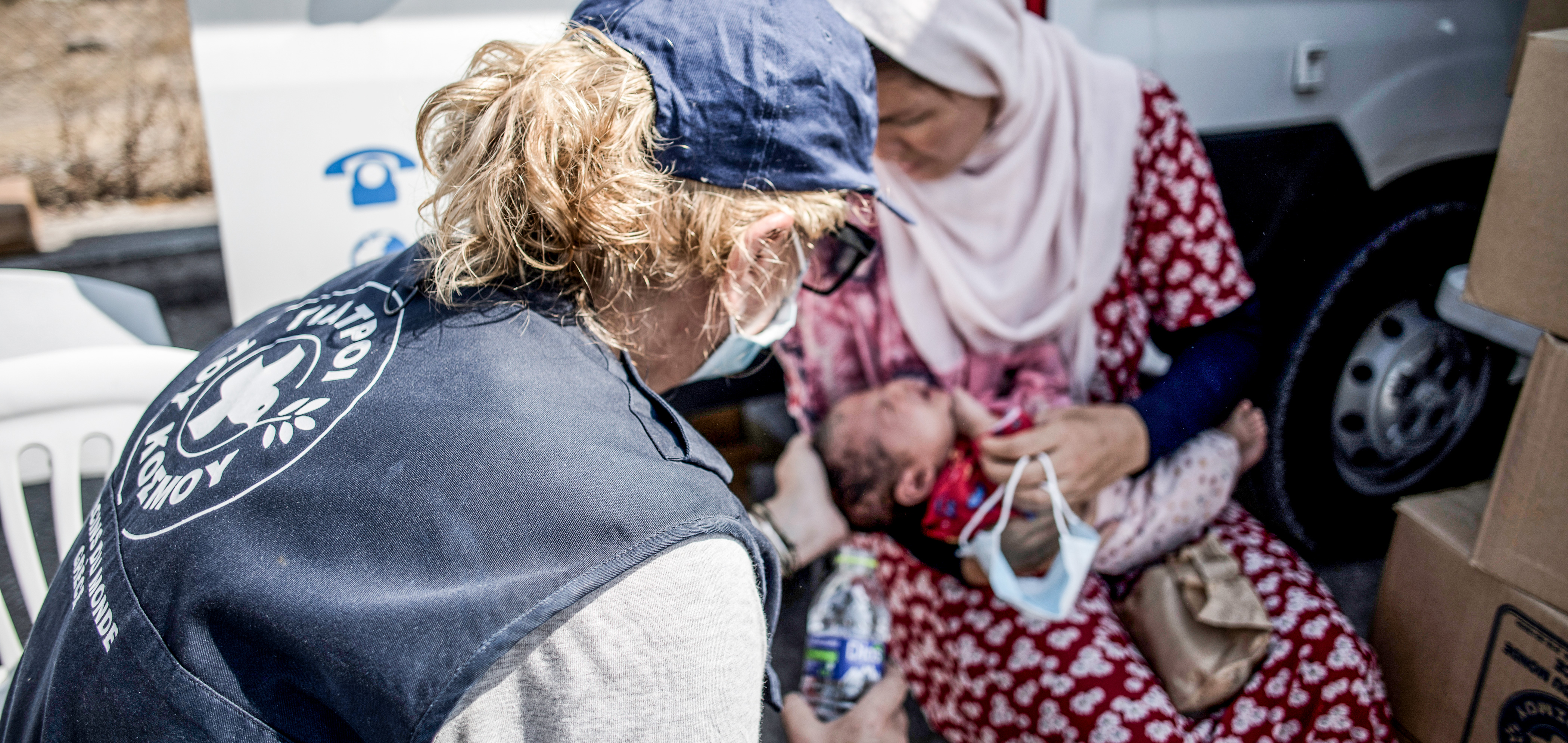Médecins du Monde is carrying out an emergency response program in order to respond to the immediate needs of refugees and asylum seekers after the fire in Moria, Lesvos, which destroyed the camp in September 2020.
Based on their long experience on the island of Lesvos, Médecins du Monde field teams are working to facilitate access to quality primary health care services, including sexual and reproductive health (SRH) and paediatric care. At the same time, they provide basic mental health and psychosocial support services (MHPSS), while identifying and supporting the most vulnerable and complex cases among the population, with a qualitative and adapted case management methodology. They further empower the population living in the camp through the cultivation of a culture of community health and hygiene, while systematically and harmoniously collaborating with other actors inside and outside the camp in view of synergies and multiplier effects.
The primary strategic priorities of MdM-Greece are to strengthen the resilience of the most vulnerable asylum seekers (such as women and children) to cope with the situation and to provide access to a comprehensive package of Primary Health Care (PHC) services to the most vulnerable asylum seekers and refugees, i.e. women and children, people with co-morbidities, etc.
New camp in Mavrovouni
The new, temporary camp in Mavrovouni was established immediately after the fire in Moria. The majority are young people, families and children. People living in tents will need all kinds of logistical assistance to rebuild their households. Leaving Moria in a hurry, some managed to carry a few of their belongings with them, others nothing. Women and children in particular, who make up about half of this population, are in dire need of medical support and targeted health services.
Médecins du Monde priorities are to strengthen the resilience of the most vulnerable asylum seekers to cope with the current situation and to provide access to a comprehensive package of Primary Health Care (PHC) services to the most vulnerable asylum seekers and refugees.
